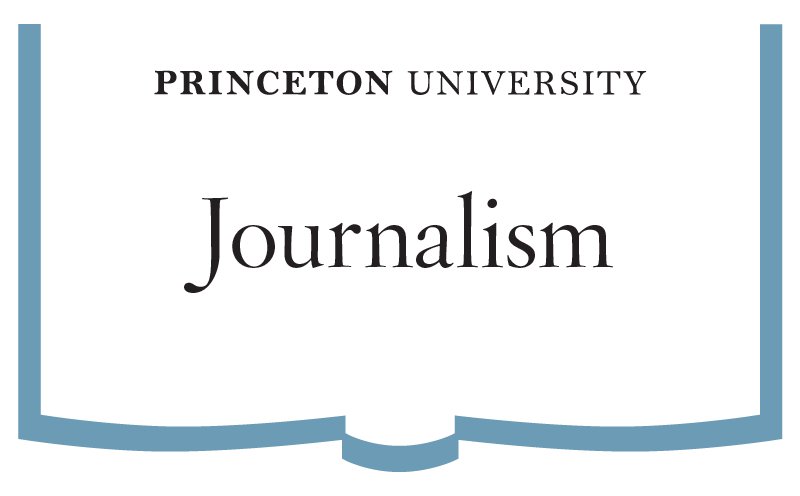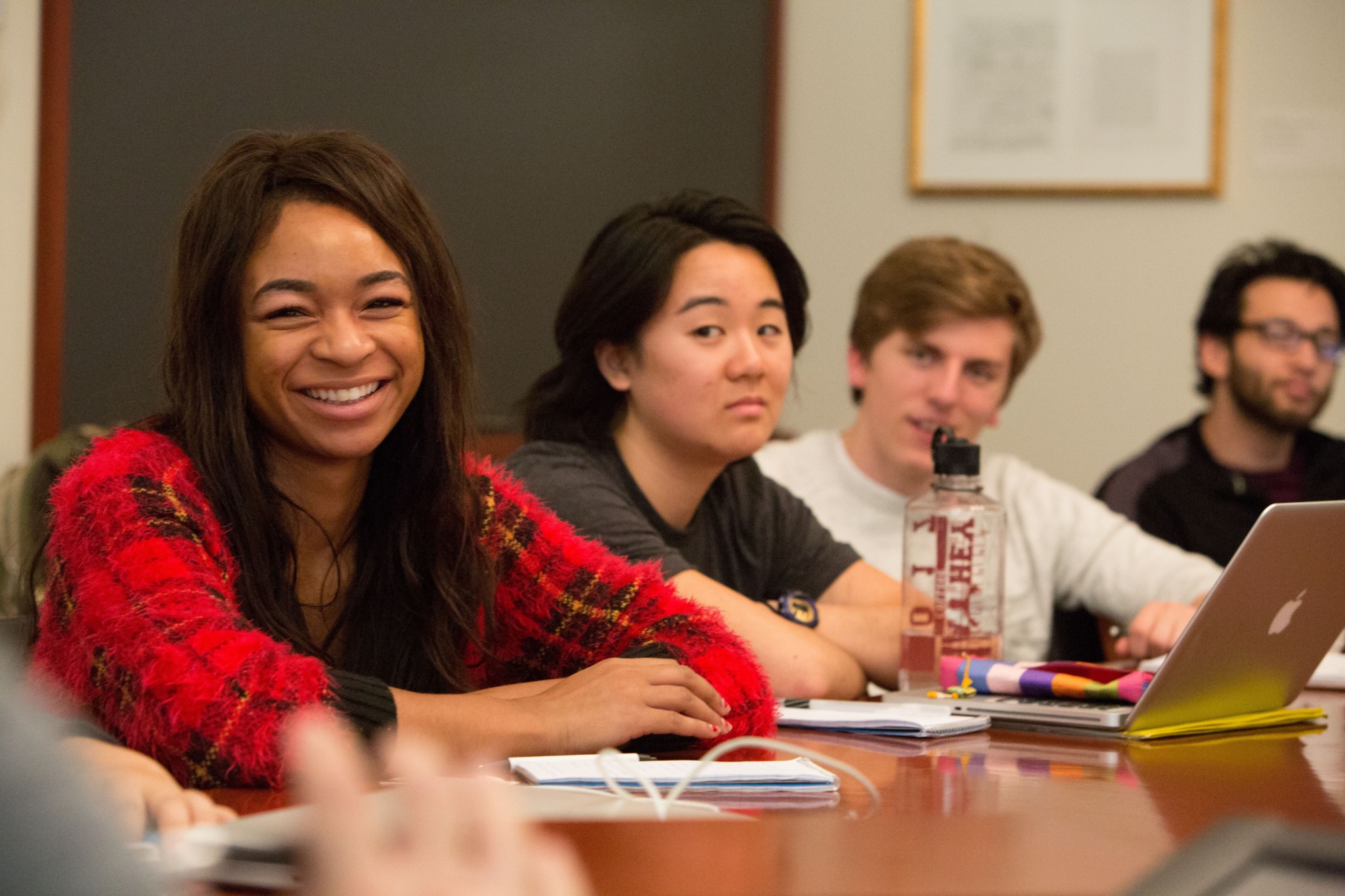Ferris Summer Grants for Student Internships in Journalism
Ferris Summer Grants for Student Internships in Journalism are funded by the endowment of Edwin F. Ferris, Class of 1899, to support summer internships in writing, publishing and journalism, in both print and digital media. The goal is to help students acquire experience in news organizations and in companies that publish books, magazines or journals.
In Summer 2024, this funding will be awarded only for internships that will be conducted in accordance with the University’s Permitted Travel Policy. Review this policy carefully to determine any requirements you need to fulfill before or during University-related travel.
The Program in Journalism will consider funding requests for up to $3,000 for expenses associated with a summer internship.
Internships must take place in a recognized organization for at least six weeks (typically eight weeks).
Eligibility
All Princeton first-year students, sophomores and juniors may apply. Requests from the journalism program’s certificate students will be prioritized.
How to Apply
Submit an application through the Student Activities Funding Engine (SAFE).
In the documents section of the application, upload the offer letter from the organization providing the internship. The offer letter should include details of the internship and the amount of financial support, if any, the organization will provide.
Deadline
The deadline to apply is May 31, 2024. Applications will be reviewed on a rolling basis by a committee of faculty and journalists from the Humanities Council that will review applications and select recipients.
Post-Project Requirement
Grant recipients are required to submit a two-page report after their internship. The grants are paid in two installments: 90% upon notification of funding, and the 10% balance in September, after submission of the report about the internship.
2023 Recipients
In 2023, Ferris Summer Grants for Student Internships in Journalism were awarded to eight Princeton undergraduates:
- Marilena Zigka, Class of 2024, Kathimerini
- Isabel Yip, Class of 2025, CNN
- Gillian Rosenberg, Class of 2025, Morocco World News
- Hope Perry, Class of 2024, Centre Daily Times
- Annie Rupertus, Class of 2025, Investigative Reporting Workshop
- Bella Butler, Class of 2025, McNally Editions
- Lia Opperman, Class of 2025, Washington City Paper
- Charlie Roth, Class of 2025, CBS News
In 2023, a John McPhee ’53 Award for Summer Projects in Independent Journalism was awarded to:
- Paige Cromley, Class of 2024, “Strife on the high seas: marine conservation group splits over tactics”
John McPhee ’53 Awards for Summer Projects in Independent Journalism
John McPhee ’53 Awards for Summer Projects in Independent Journalism are meant to recognize promising student journalists and to help underwrite the cost of long-form, nonfiction writing projects of at least six weeks in duration.
In Summer 2024, this funding will be awarded only for independent projects that will be conducted in accordance with the University’s Permitted Travel Policy. Review this policy carefully to determine any requirements you need to fulfill before or during University-related travel.
The Program in Journalism will consider funding requests for up to $3,000 for expenses associated with a proposed independent project.
Independent projects must take place in consultation with an advisor and for at least six weeks (typically eight weeks).
Eligibility
All Princeton first-year students, sophomores and juniors who have completed at least one journalism course at Princeton may apply. Requests from the journalism program’s certificate students will be prioritized.
How to Apply
Submit an application through the Student Activities Funding Engine (SAFE).
In the documents section of the application, upload the following:
- An official transcript confirming that the applicant has completed at least one journalism course at Princeton;
- A résumé or CV;
- Two journalism writing samples (published or class work);
- A proposed budget outlining specifically how the applicant would expect to spend the award funds (include living expenses, if appropriate);
- The name of one (or more) reference;
- The name of at least one member of the Princeton faculty who will advise the applicant on the project from inception to completion;
- A letter of commitment from the applicant’s faculty advisor, confirming that the advisor will regularly video conference with the applicant during the reporting and writing of the project;
- A proposal letter of no more than 1,000 words. Subjects that would be appropriate to touch on in the letter include:
—The general topic matter the proposed article would cover, and why the subject would be of interest to readers and of importance to society;
—The maximum story that reasonably could result from the applicant’s efforts and, if unforeseen challenges arise, the minimum story the applicant is confident would result;
—Human sources the applicant would seek to interview, and why;
—Primary documents and data the applicant would seek to gather and review, and why; and,
—Where the resulting article might be published and the size of the publication’s readership.
Deadline
The deadline to apply is May 31, 2024. Applications will be reviewed on a rolling basis by a committee of faculty and journalists from the Humanities Council that will review applications and select recipients.
Post-Project Requirement
Award recipients are required to submit a two-page report on their project and a copy of the resulting article(s). The awards are paid in two installments: 90% upon notification of funding, and the 10% balance in September, after submission of the report and article(s).
2023 Recipient
In 2023, a John McPhee ’53 Award for Summer Projects in Independent Journalism was awarded to:
- Paige Cromley, Class of 2024, “Strife on the high seas: marine conservation group splits over tactics”
Ferris Prizes for Outstanding Undergraduate Projects in Journalism
Ferris Prizes for Outstanding Undergraduate Projects in Journalism are awards of $250 that recognize excellent projects submitted by students in journalism seminars during the academic year, on any topic and in any medium of journalism, including audio and video presentations.
Journalism professors are invited to nominate the best papers or other work produced in their courses. The selection committee consists of faculty members and journalists. The prizes will be awarded during the summer to projects nominated in the previous fall and spring semesters.
Criteria for Judgment
- Originality
- Depth of insight
- Skill of presentation
- Contribution to a reader’s understanding of the topic
- Short pieces receive equal consideration with longer ones
Visiting Lecturer in the Humanities/Ferris Professor of Journalism/McGraw Professor of Writing
The Program in Journalism and its academic home, the Council of the Humanities, welcome proposals from journalists to teach seminars in journalism as visiting Ferris Professors of Journalism and in nonfiction as visiting McGraw Professors of Writing.
The Program and the Council share a vision that is both local and global, and which spans disciplines and borders. They view a strong, ethical, and representational press as essential to participatory democracy. They are committed to innovation, public engagement, diversity and inclusive excellence.
Journalists from a range of backgrounds and media are encouraged to apply. Full-time visiting professors take a formal leave from daily journalism to devote themselves to teaching. They are expected be on campus four full days a week, on average; attend all faculty gatherings; and participate in University life. They give talks, participate in panels, advise students, and join in events.
Part-time visiting professors are expected to spend two full days, on average, on campus each week for the 12-week term, as well as during the week of Reading Period. Part-time professors are expected to attend faculty gatherings whenever possible.
Seminars meet once a week for three hours, with enrollment limited to 16. Students devote about six hours a week to class preparation. Every week or two, students submit assignments, which the professor critiques during mandatory one-on-one writing conferences. Professors often invite guest speakers and arrange a class visit to a newspaper or magazine.
Part-time appointments offer a salary of $37,500 a semester. Full-time appointments offer a salary of $75,000 a semester. Former visiting professors are eligible to propose seminars that include a class trip over fall or spring break (subject to University travel policies at the time) during which students conduct reporting off-campus in a domestic or international location. These professors receive a salary of $90,000 and are normally expected to be “in residence,” relocating to Princeton or the local vicinity for the semester.
Applicants should submit a résumé or CV that includes recent publications; a proposal for a seminar; and a cover letter that describes their interest in teaching.
Innovative and cross-disciplinary proposals are encouraged. Many seminars fall under one of these broad course rubrics:
Innovative and cross-disciplinary proposals are encouraged. Many seminars fall under one of these broad course rubrics:
- The Literature of Fact
- Investigative Journalism
- Writing about Racial Justice
- Data Journalism
- Writing about the Environment
- Covering Politics
- International News
- Audio Journalism
- Visual Journalism
- Writing about – (Culture, Film, Ideas, Law, etc.)
Seminar proposals should include:
- One or two paragraphs about the focus of the course
- A short course description for the course catalog (75 words)
- Specific topics for each of the 12 weeks of the course
- A sample reading list of no more than six titles (books, articles, websites, etc.)
- Possible writing assignments (typically 5-8 short pieces, one of which might be developed into a longer project to be submitted during Reading Period)
Essential Qualifications:
- Applicants should have achieved distinction in journalism or other kinds of nonfiction writing
- Must be able to communicate their experience effectively to students, peers, and members of the community
- Must be a practicing journalist–a reporter, editor, producer, photographer, critic, or documentarian
- Must have at least five years’ experience working at a news organization or writing regularly for major publications, including in the year immediately prior to submitting application
- Must not have a tenure-track or administrative position at an academic institution
- Must have a bachelor’s degree or equivalent experience
Questions may be addressed to Tim Waldron, Journalism Program Manager, at twaldron@princeton.edu or 609-258-3899.













